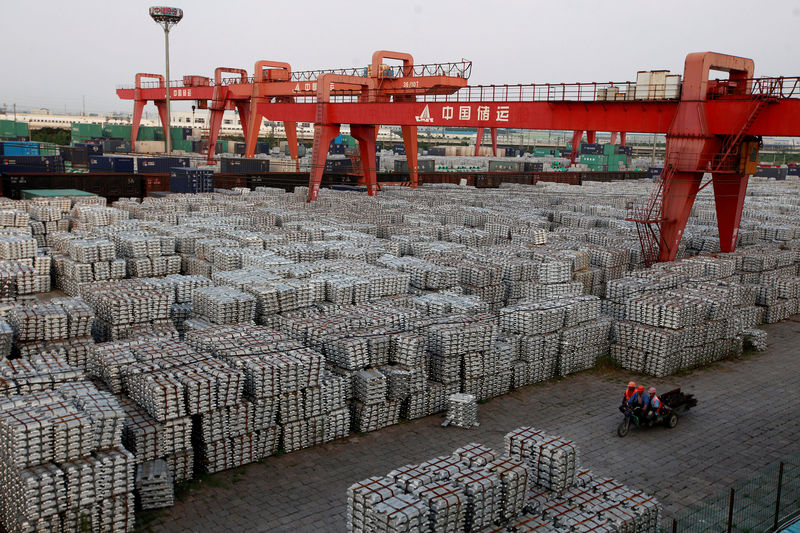Investing.com’s stocks of the week
BERLIN (Reuters) - Investor morale in the euro zone deteriorated further in March, a survey showed on Monday, due in part to concerns about rising protectionism after U.S. President Donald Trump threatened to impose import tariffs on steel and aluminum.
Trump said on Thursday that the United States would apply duties of 25 percent on imported steel and 10 percent on aluminum to protect U.S. producers. The European Commission called the step a blatant intervention that amounted to protectionism and it raised the prospect of counter-measures.
"The comments by U.S. President Donald Trump about introducing tariffs on certain products have not only alarmed the European Commission. Investors are also clearly reacting," Sentix researcher Manfred Huebner said.
Sentix's index for the euro zone dropped to 24.0 in March from 31.9 in February, undershooting the Reuters consensus forecast for a reading of 31.0. It marked the second consecutive monthly decline and it was lowest level since April 2017.
An index tracking Germany, the largest economy in the euro zone, fell to 29.1 from 36.2 last month. Expectations for Germany dropped to -2.5 from 5.5, hitting their lowest level since February 2016.
"The German growth engine is clearly starting to stutter," Huebner said, adding that Trump's protectionist rhetoric was clouding the mood among investors.
On Saturday, Trump kept up the pressure, threatening European automakers with an import tax if the EU retaliated in response to his plan for tariffs on metals.
Sentix also said that investors were disappointed by the coalition deal sealed by Chancellor Angela Merkel's conservatives and the center-left Social Democrats. Both factors together put Germany's economic boom at risk, Huebner said.
The German government expects gross domestic product to grow by 2.4 percent this year from 2.2 percent in 2017.
Sentix said it conducted the survey of 1,029 investors between March 1 and 3.
